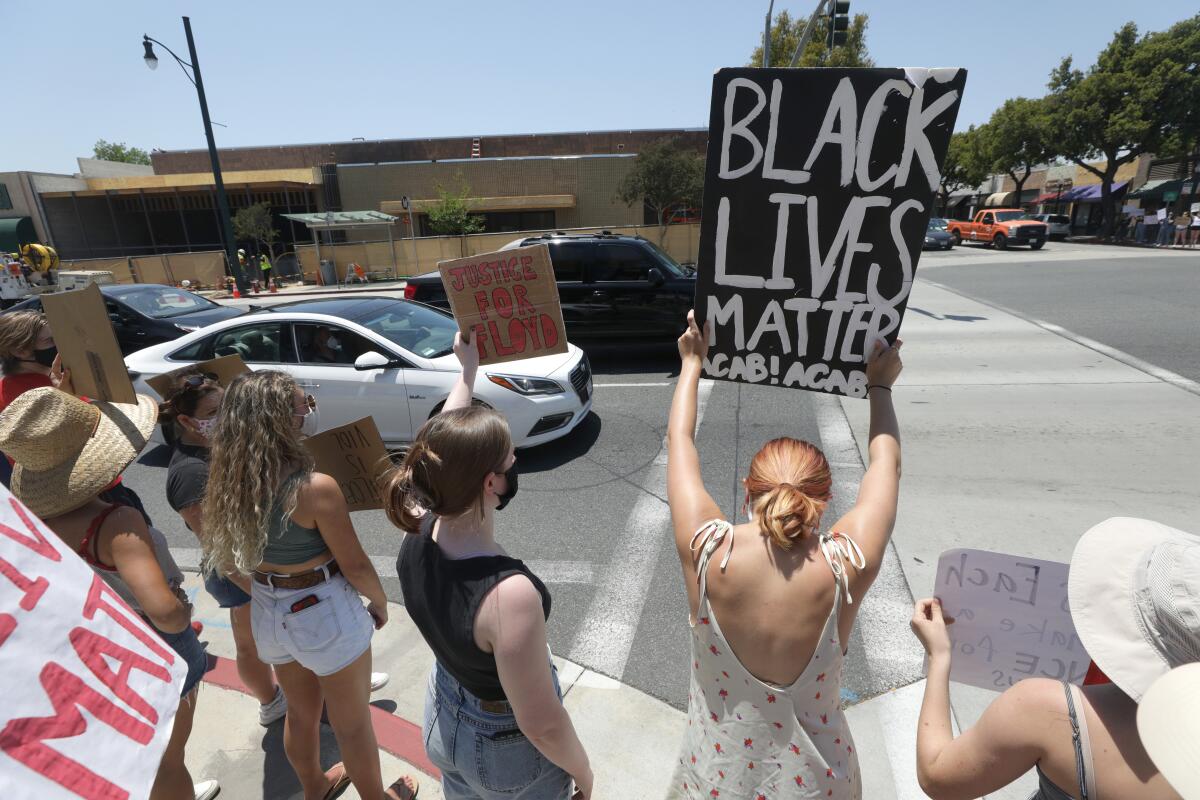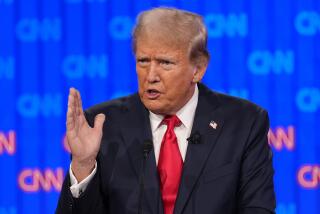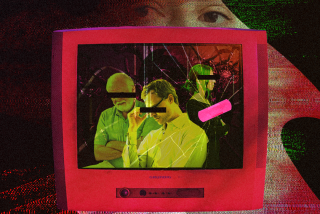Op-Ed: White tribalism is under assault — from white people. That’s an amazing development

Almost four years ago, after Donald Trump won the White House, I interviewed political scientist Dorian Warren to get his thoughts about that stunning turn of events. Among other things, I asked him about the larger meaning of the election, and what well-meaning Americans needed to do next.
Warren, who runs the Center for Community Change Action, was blunt. “This is a white problem,” he told me. “It’s up to white people to fix it. People of color have done everything they can.”
In Warren’s view, it was white tribalism — not simply dissatisfaction with jobs and the economy, as the media was fond of saying — that had put Trump in power. That tribalism, he predicted, was now going to circulate freely through the body politic.
The only corrective, he said, would be for white people as a group to come to terms with the racism in its ranks, racism that cuts across political and economic lines, and to do something about it. Warren wasn’t very hopeful about this happening. In the meantime, he said, Black people — and immigrants, and other vulnerable groups — needed to brace themselves as they would brace for a Category 5 hurricane.
A curious thing has happened on the way to the total destruction of our democracy, however: White people are, at long last, seeing the light.
Two weeks of national protests against the police killing of George Floyd has seen whites not simply showing up to protest in great numbers, but also naming the bigger problem of racism and publicly disowning it — as white people. This is huge. Day after day, I’ve seen white and other non-Black folk from L.A. to D.C. carrying signs with messages affirming Black life and decrying white supremacy, without a shred of the usual white fragility, hesitation or self-consciousness. There’s a real sense of white camaraderie and common purpose that I’ve never seen before in Black protests, a full-throated acknowledgement that Black lives matter without the need for a qualification that all lives matter.
The nature of the white presence on the streets has changed, too. It’s no longer just radical white-ally types but now includes suburban and middle-class people I don’t usually associate with protest of any kind. Black Lives Matter has always marched in white, affluent neighborhoods as a matter of principle, strategically bringing the message where it needs to be heard. But the last couple of weeks have gone beyond that.
Whites are protesting — with their kids and dogs — not just in Santa Monica and Hollywood, but on the Main Streets of places known for their history of racist police practices, like Culver City and Glendale. Driving recently through El Segundo and Hawthorne, I have been amazed to come across protests in those places — small, to be sure, but lively and as unapologetic as any I’ve watched on television. And the faces in the crowds were largely white.
So is anti-racism finally becoming a thing? The fact that big corporations are scrambling to express their solidarity with the cause of opposing systemic racism — Lyft, Ben & Jerry’s and others — may not be entirely altruistic, but just the breadth of scrambling gives me reason to hope this isn’t a mere passing trend.
Of course, even if this turns out to be substantive change, there is still the 45% of the country in the cult of Trump, people who will stick with the president, no matter how tribal and racially tone-deaf he remains. A far-right backlash to the protests and their growing demands for justice is all but inevitable.
Nevertheless, I think the horror of the Floyd killing, the way we all had to watch the life being squeezed out of him like air out of a balloon for nearly nine minutes — an eternity — during which time Floyd pleaded with the officer and at one point cried out “Mama,” was just too much for many of us, including white people. Of all the grim videos we’ve seen, this one gave whites absolutely no wiggle room to argue that maybe, just maybe, the Black man brought it on himself.
Also horrifying to watch was the way Derek Chauvin’s fellow officers, sworn to protect and serve, stood by like witnesses at an execution. This is perhaps where well-meaning white Americans, those who didn’t vote for Trump and who would never call themselves racist, at last saw themselves and cringed: not as the ones committing the act, but as the ones standing by in silence when the act is committed.
I’m hoping that an epiphany about the effects of racist inertia will extend beyond police brutality. White people in 2020 are not the George Wallace who screamed, “Segregation forever!” but they are the parents, careful for generations, to avoid sending their kids to schools with too many children of color. They may not have actively kept Black people out of their neighborhoods with restrictive covenants, but many of the largely white neighborhoods in which they live are a legacy of those covenants.
Racial inequity is all over our social footprint, and the protests feel like a coming-out for white people who have been reluctant to admit that until now. They suddenly seem to be getting over their fear of being blamed, they are seeing that oppression of Black people really isn’t good for them either. For starters, they got tear-gassed and brutalized by the cops too. Who will forget the video of the 75-year-old white man in Buffalo who was shoved to the ground by a cop and lay unconscious while other cops walked around him as he bled from a head wound?
I know we should be wary. And it will be a little galling to watch how racial injustice, which Black people have lived with and protested against forever, is suddenly widely relevant because white people have discovered it. But we’ve always known that in order for justice to prevail in this country, everybody has to be on board, most especially people in power.
The key thing to keep in mind now is that critical masses of white people denouncing racism is a very good sign that white tribalism, the original social contract of this country, one that’s held for hundreds of years, is finally cracking. With Blacks providing the moral context, whites are calling themselves out, separating racist from non, deciding which side of the color line they want to be on. That’s a change for the good.
Erin Aubry Kaplan is a contributing writer to Opinion.
More to Read
A cure for the common opinion
Get thought-provoking perspectives with our weekly newsletter.
You may occasionally receive promotional content from the Los Angeles Times.










